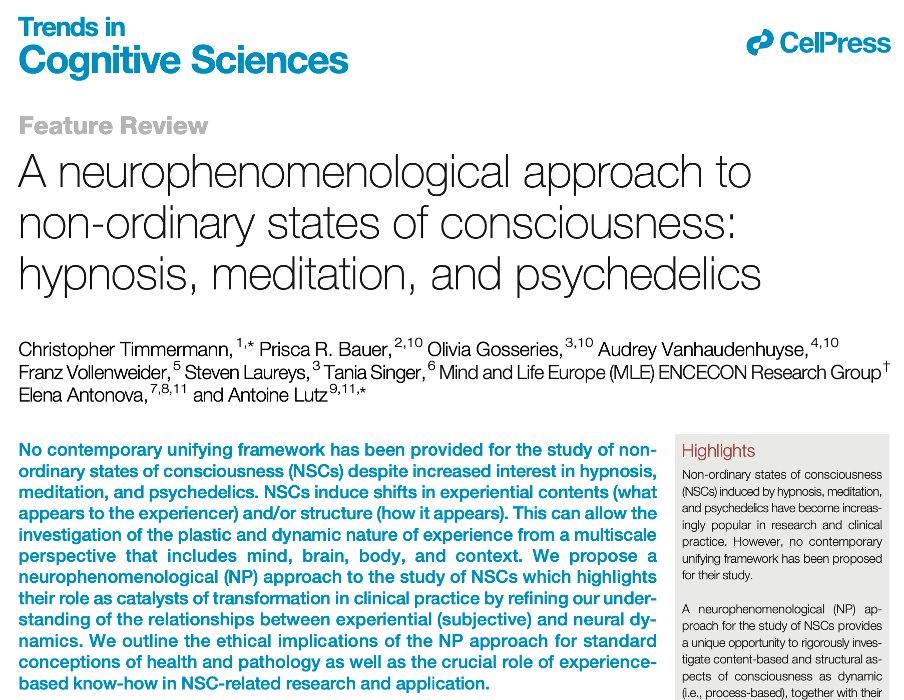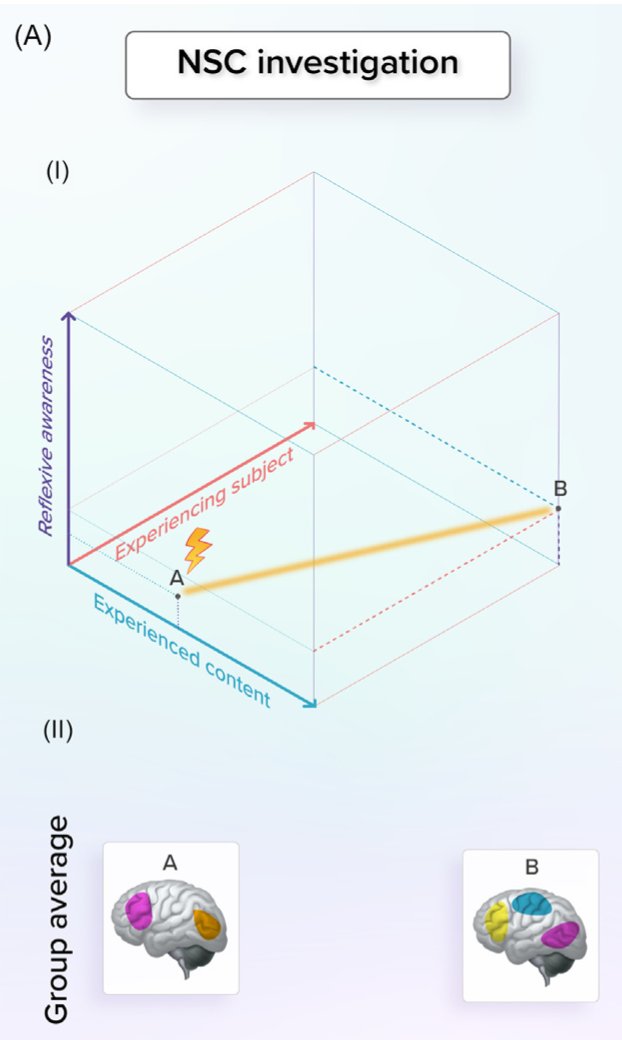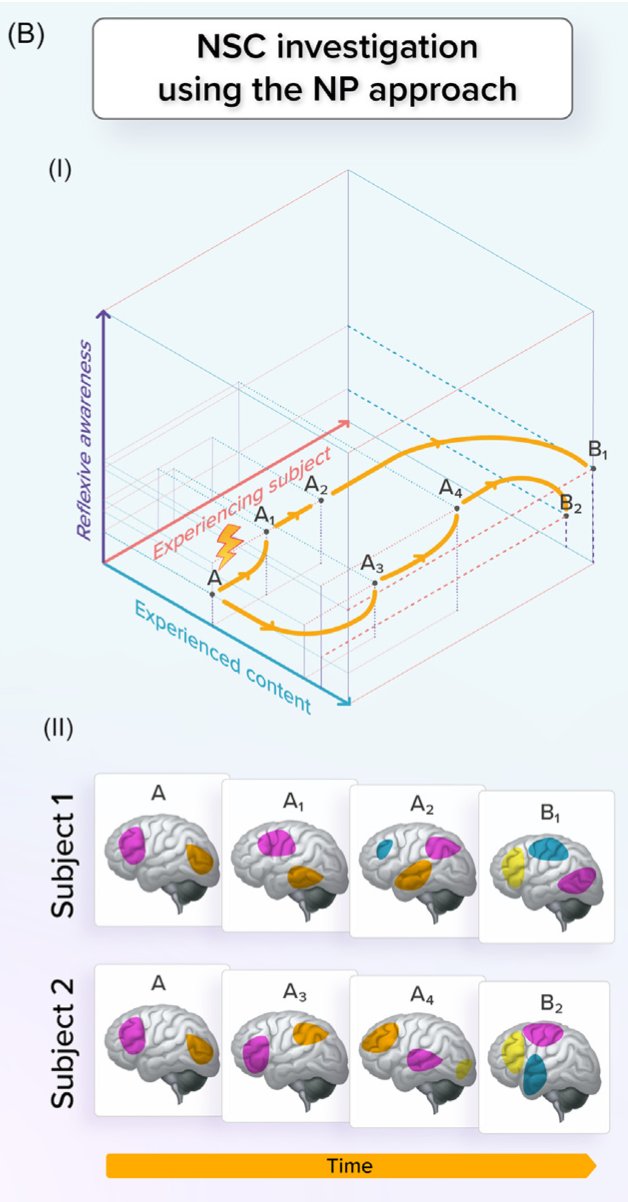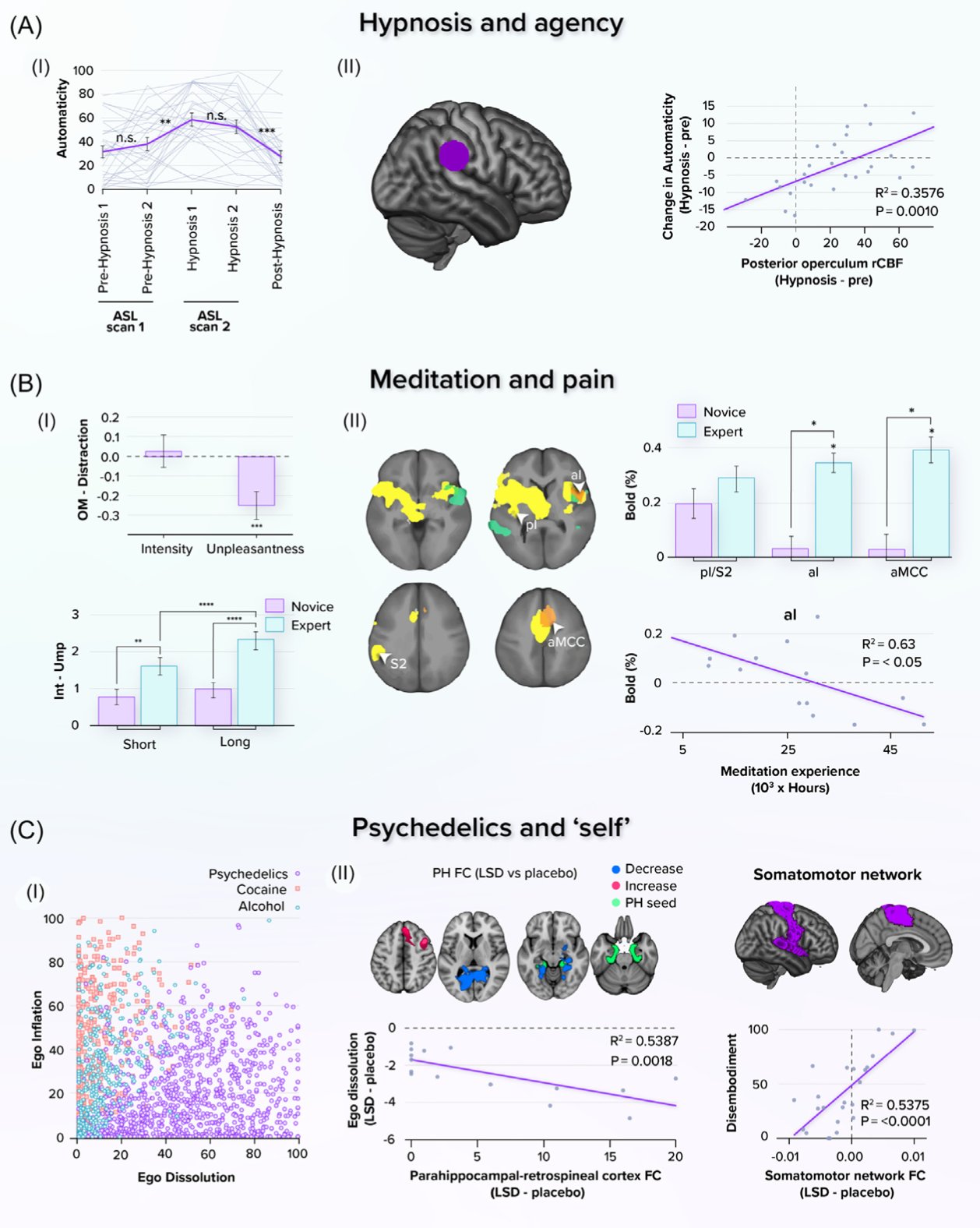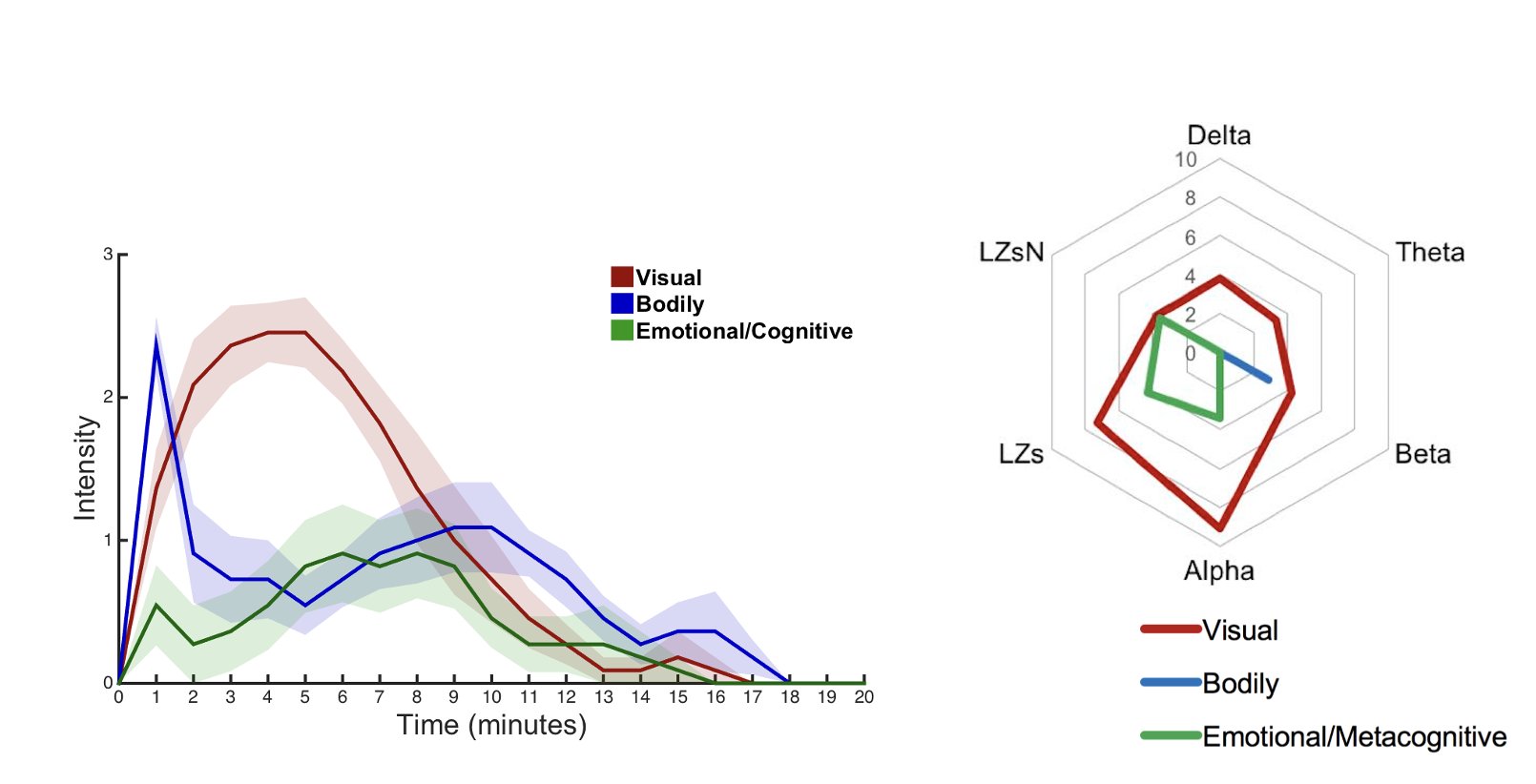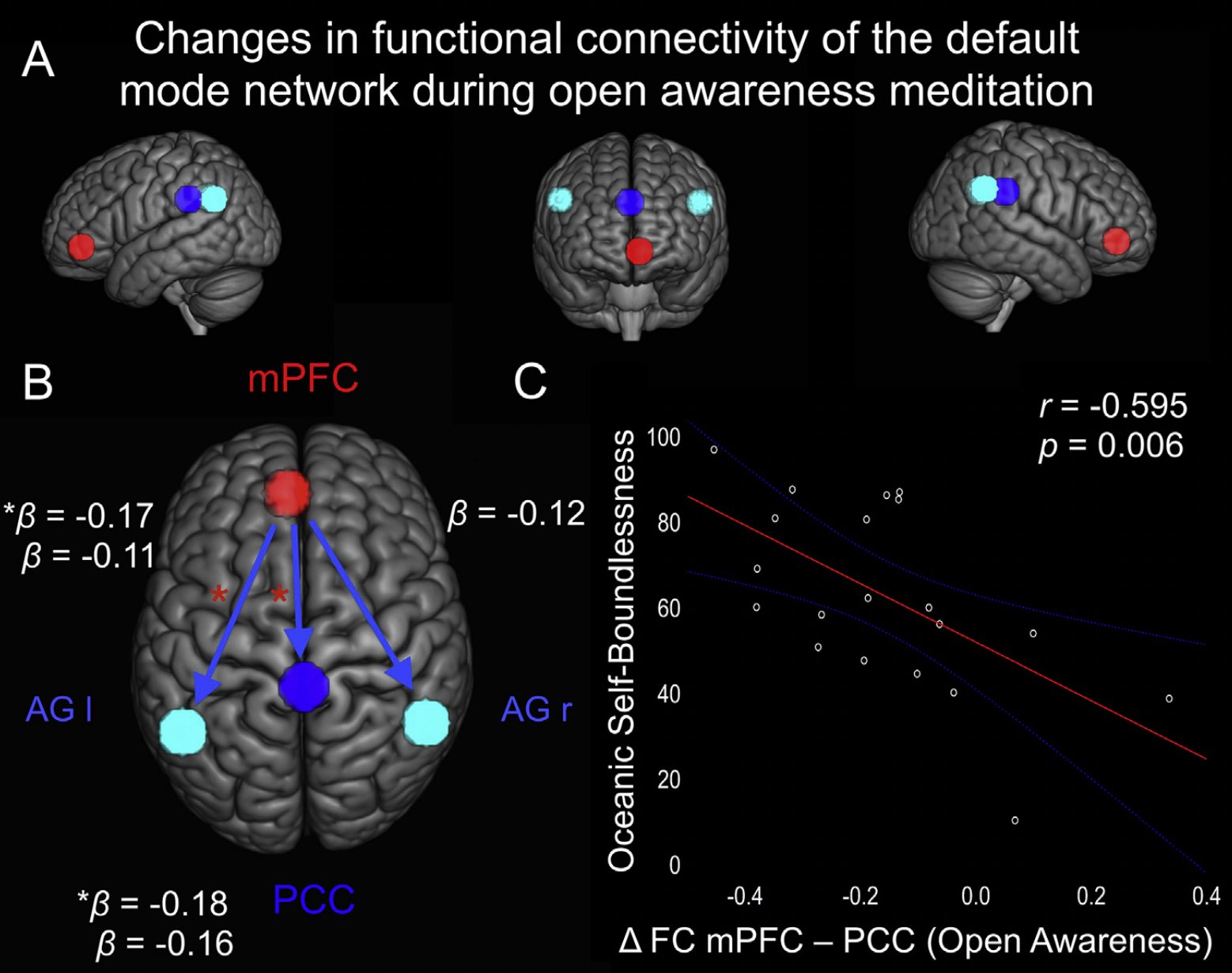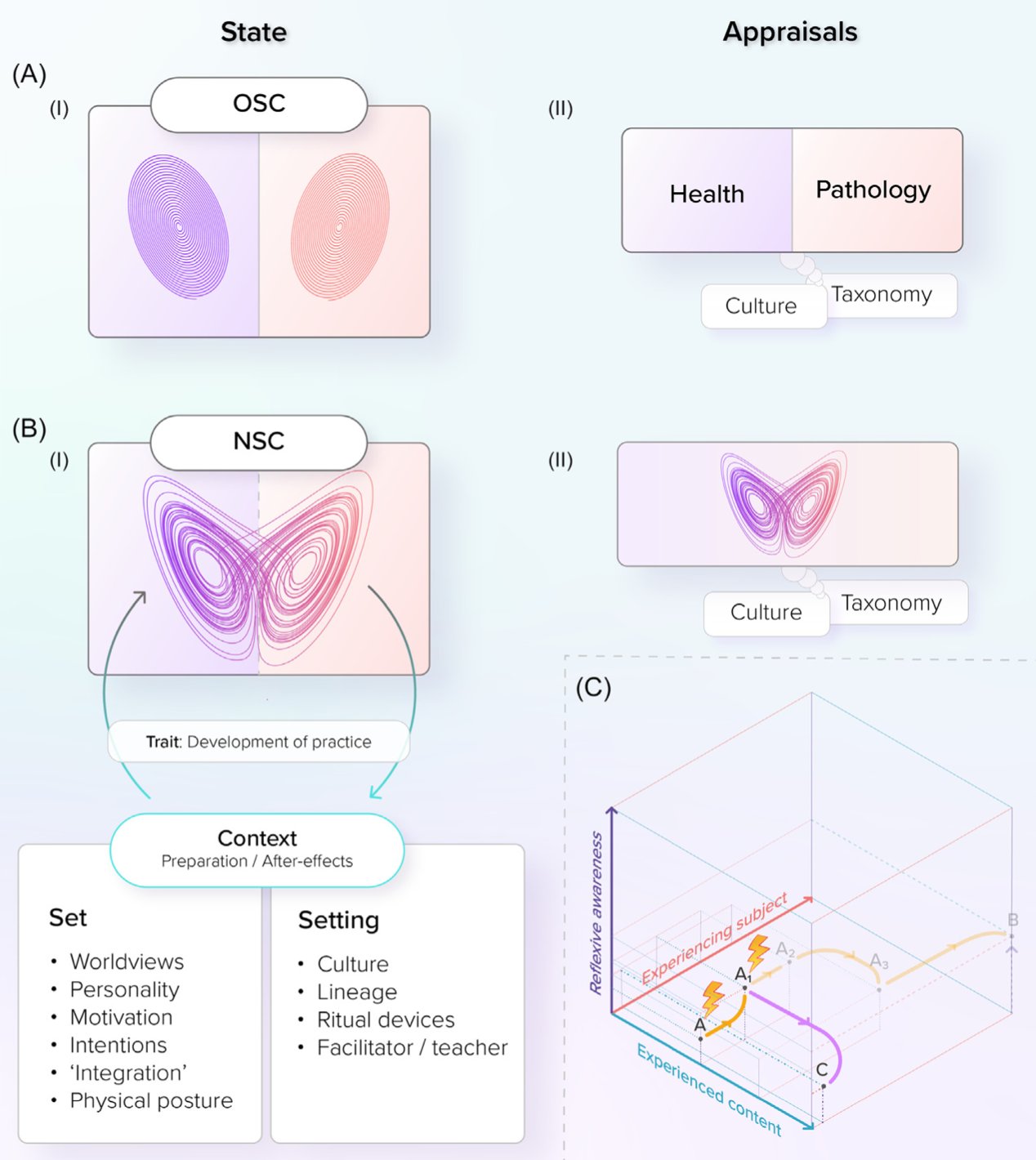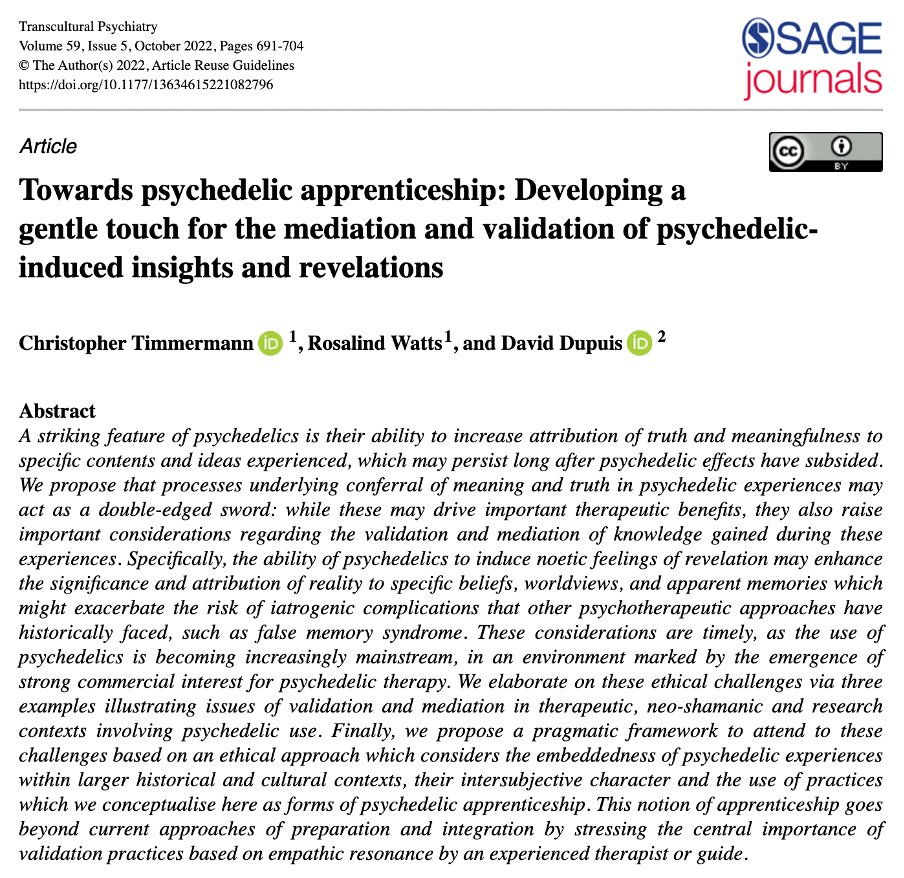Thread by Chris Timmermann
- Tweet
- Dec 29, 2022
- #Cognitivescience
Thread
Our new feature review is now published in @TrendsCognSci
‘A Neurophenomenological (NP) approach to non-ordinary states of consciousness (NSCs): hypnosis, meditation, and psychedelics’ (a thread)
authors.elsevier.com/a/1gIK%7E4sIRvLZ7V
‘A Neurophenomenological (NP) approach to non-ordinary states of consciousness (NSCs): hypnosis, meditation, and psychedelics’ (a thread)
authors.elsevier.com/a/1gIK%7E4sIRvLZ7V
TLDR. We propose an NP approach to NSCs which involves the careful examination participants’ experience to enrich the study of consciousness, thus refining our understanding between neural and subjective data, the clinical potential of NSC, and their embeddedness in context
NSCs may advance the study of consciousness by rendering structural features of experience (eg the self) more visible for scientific enquiry via perturbation. A standard approach tends to average out individual variability and ignore the temporal unfolding of these experiences
By carefully examining experience, an NP approach renders dynamic changes in the content/structure of experience reflexively accessible, reportable, and potentially reproducible, revealing state transitions of different experiential/neural trajectories within a given NSC
We then review the contribution of standard (non NP) approaches to NSCs to the study of structural features of consciousness (agency, pain, and the sense of self) and their neural correlates, via specific examples derived from hypnosis, meditation, and psychedelics literature
We also review NP studies of NSC: Eg.1 The use of phenomenological methods for the identification of experiential clusters of self-boundary dissolution during meditation practice linked to beta power modulations in the TPJ. pubmed.ncbi.nlm.nih.gov/30397512/
Eg.2 We recently employed disciplined interviews after the administration of the potent psychedelic DMT to reveal the temporal trajectory of different features of experience (visual, bodily, emotional) linked to different EEG features pubmed.ncbi.nlm.nih.gov/31745107/
We identify the DMN as a system commonly modulated across NSCs, possibly reflecting its necessary (but probably not sufficient) role to support a temporally-extended narrative sense of self, which is altered during/after an NSC
Eg. decoupling of DMN nodes during OA meditation, the day after a psychedelic-assisted mindfulness retreat being linked to a scores of self-dissolution (eg oceanic boundlessness) possibly revealing a more ‘flexible’ self pubmed.ncbi.nlm.nih.gov/30965131/
NSCs have been traditionally employed within specific practices, rituals, and contexts. These culture-specific determinants highlight the crucial role 1st/2nd-person methods (ie NP) for the study of NSCs and their application in safe and effective clinical practice
The context-embeddedness/sensitivity of NSC has implications for appraisals of health and pathology. An NP approach highlights the importance of context (set/setting) to consider an experience (eg ego-dissolution) as an opportunity for clinical improvement or a pathological state
Importantly, further ethical implications concern the explicit consideration of the role of experience-based know-how to foster safety and desirable outcomes in skilful practices (eg traditional, shamanic, clinical) employing NSCs. Eg pubmed.ncbi.nlm.nih.gov/35313754/
This work was a true pleasure to write together with collaborators working in hypnosis, meditation, psychedelics, and consciousness research. We hope it serves as a reminder of the inspiring work of Francisco Varela and neurophenomenology within consciousness and NSC science
Many thanks to the contributions of co-authors Antoine Lutz, Elena Antonova, Prisca Bauer, Olivia Gosseries and Audrey Vanhaudenhuyse (@GIGAConscious), Franz Vollenweider, @DrStevenLaureys, Tania Singer…
As well as the @mindandlifeeu European Neurophenomenology, Contemplative, and Embodied Cognition Network: @Tbarnhofer, @olafblankelab, Quinton Deeley, Marie-Elisabeth Faymonville, Diego Hangartner, @IliosKotsou, @mlifs1, @romy_lorenz…
... @gpagnon, Claire_petitmengin, Fabienne Picard, Pierre Rainville, @aroepstorff, Corine Sombrun, @ksk_S, Francis Taulelle, Devin Terhune, @mvugt, Holger Yeshe n/n
